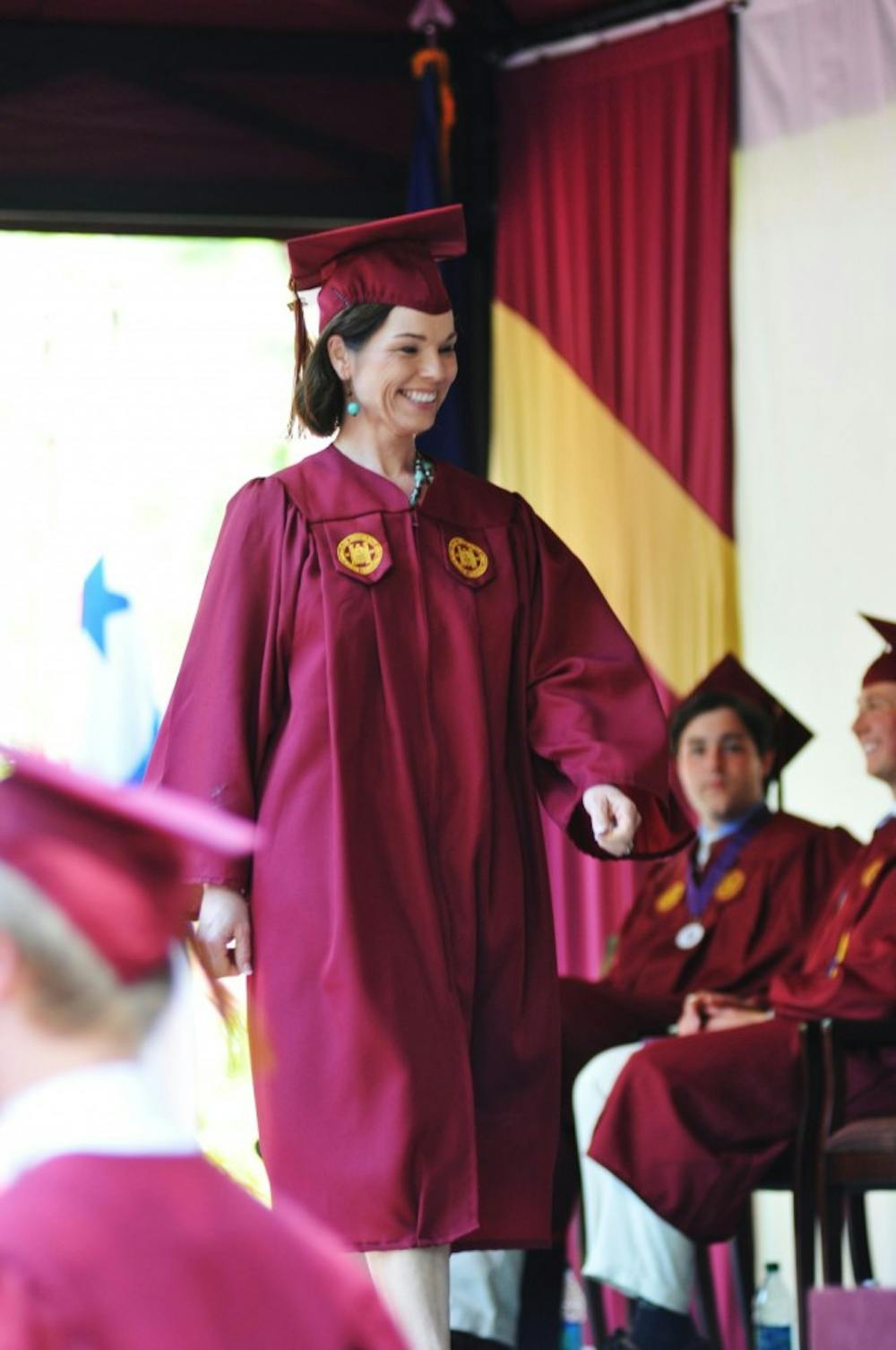In one moment, she was an Elon University parent, employee and student. After 16 years, her relationship with the university strengthened when she became an Elon graduate in May 2011 as well.
Kim Giles, resources and communication coordinator, came to Elon with a high school degree and worked as an employee in the admissions office performing data entry in 1994. Two years later, she enrolled in courses as an undergraduate student.
“I was just taking classes to become more knowledgeable,” Giles said. “At some point along the way, I decided I would start taking courses to get a degree, and I registered for classes like any other student at Elon.”
She worked 40 hours while taking eight credits and earned a degree in corporate communications, now referred to as strategic communications. She described the academic challenge as a way to recapture lost opportunities.
“I wanted to grow and move up the corporate ladder and do more for Elon than I knew in that role I could ever do,” she said.
While Giles’ ambition is admirable, her relationship to the university is not unique. Elon offers university employees tuition remission, which enables faculty and staff to take courses at the institution.
“The university really strongly believes in providing the opportunity for advancement for our employees,” said Ron Klepcyk, director of human resources.
And employees prove they are eager to gain new skills and a higher education. Giles worked through her lunch hours and worked after hours to make up for the time she spent in class.
“I learned real quick that I wasn’t going to move up unless I had a degree, and that was the push I needed,” Giles said.
Since graduating, she received two job offers, and accepted the offer from the university from which she graduated. Nevertheless, even faculty members with numerous academic degrees are attracted to student life.
“What’s interesting to me is we have people at all levels of the institution that have taken advantage of this program,” Klepcyk said.
Dan Wright, associate professor and chair of the department of chemistry, used tuition remission to enroll in Spanish courses and improve his foreign language skills. His position as Honors Program director also fueled his decision to return to the classroom, he said.
“I wanted to promote a culture of students taking foreign language and to be lifelong learners,” Wright said. “What better way to promote that than to showcase it?”
Wright’s commitment to education also opened opportunities for him as an Elon professor. He was offered to attend a study abroad course to Spain and Costa Rica and traveled with students to Peru five times.
Aside from professional developments, the opportunity to explore other disciplines enhanced his teaching and student communication, Wright said.
“It gave me the ability to add more concepts to my own class,” he said. “Before I was a lecturer, now I am a teacher.”
Viewing syllabi in other departments also helped him develop syllabi for his own courses, he said.
“Things become clearer when you’re in another situation,” Wright said.
Giles agreed that taking courses provided her with new perspectives, in and out of the classroom. Adopting a role in both the student and administrative world enabled her to represent both sides of university life, she said.
“I could see both sides of the coin a lot clearer,” Giles said. “I could relate to faculty because when they would have stress with students, I could see the side of the students.”
While Giles recognizes the benefits of returning to school, an element of intimidation accompanied her academic experiences, she said.
“Students talk about what is happening in their world, and you’re the minority for sure,” Giles said. “I was an older person in a sea of young people.”
Although a faculty member, Wright said he felt the students embraced him as a peer in the classroom, but he elected not to work with students on group projects.
Nevertheless, students still received a positive message from his presence in the classroom, according to Wright.
“We embrace the idea that learning is a lifelong venture, so faculty that want to do this embrace what we’re trying to teach students,” he said.


